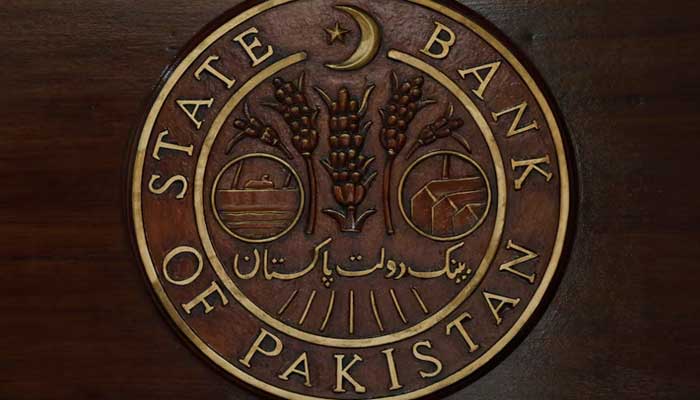A deeper cut
On Monday, SBP logged its deepest rate cut yet, slashing policy rate by 250 basis points to 15.0 per cent
On Monday, the State Bank of Pakistan logged its deepest rate cut yet, slashing the policy rate by 250 basis points to 15.0 per cent. This marked the central bank’s fourth consecutive rate cut as inflation remains in the single digits through the month of October and takes the total rate since June to 7.0 per cent. The rate cut was in line with expectations of most analysts, independent economists and investors, with the PSX breaching the 92,000-point threshold on Monday as investors rushed to amass policy rate-sensitive shares ahead of the SBP’s Monetary Policy Committee meeting on the same day. This development follows the country securing a vital new $7-billion IMF bailout, reducing economic uncertainty and improving prospects for planned external inflows. In its statement, the MPC noted that inflation has declined faster than expected from a multi-decade high of nearly 40.0 per cent in May 2023 and has reached close to its medium-term target range in October. It also highlighted how the tight monetary stance continues to play a key role in driving the downward trend in inflation, while a sharp decline in food inflation, favourable global oil prices and absence of expected adjustments in gas tariffs and Petroleum Development Levy (PDL) rates have accelerated the pace of disinflation in recent months. Favourable global oil prices and absent adjustments cannot be expected to last forever and, as such, the MPC assessed that the near-term inflation may remain volatile before stabilising within the 5.0 to 7.0 per cent target range.
In fact, inflation has already slightly exceeded this target range, clocking in at 7.2 per cent for the month of October and average consumer price index inflation is at 8.7 per cent for the current fiscal year. Though the MPC expects the average inflation for FY25 to be significantly lower than its previous forecast range of 11.5–13.5 per cent, it acknowledges that this outlook is subject to multiple risks. These include escalation in the Middle East, recurrence of food inflation pressures, ad-hoc adjustments in administered prices and implementation of contingency taxation measures to meet shortfalls in revenue. Despite these risks, the latest data show a gradual pick-up in economic activity. This growth is expected to gain momentum in the coming months and the MPC expects real GDP growth in FY25 to be better than its earlier assessment but within the 2.5 to 3.5 per cent range.
While this growth might seem modest for a developing country with a rapidly growing population and it is far too early to declare victory on the inflation front, the ongoing stabilisation in the economy clearly represents progress, especially given where things were just over a year ago. That being said, for too many ordinary citizens, little has changed from when the economy was seemingly on the verge of default. Most salaried individuals and those on fixed incomes now seem to be perpetually at risk of going under even if the overall economy has escaped that situation. Price increases may have decelerated at a great pace and while this ought to be celebrated, most people are still left having to pay far more for the same goods and services than they did three to four years ago on the same incomes. Staying under the IMF umbrella means it will be a while before people can expect relief on this front. While this does not mean that the government should reverse course or even that it has not done a good job in stabilising the economy thus far, it has to come up with ways of helping relieve the financial pressure on ordinary people without straying off the road to stability.
-
 Celine Dion Reveals Music She's Listening To Lately
Celine Dion Reveals Music She's Listening To Lately -
 HR Exec Kristin Cabot To Speak At Crisis PR Conference After Coldplay Incident
HR Exec Kristin Cabot To Speak At Crisis PR Conference After Coldplay Incident -
 Why Travis Kelce Says Taylor Swift Has Made Him 'so Much Better'?
Why Travis Kelce Says Taylor Swift Has Made Him 'so Much Better'? -
 Halle Berry Credits This Hairstyle With Launching Her Acting Career
Halle Berry Credits This Hairstyle With Launching Her Acting Career -
 Hailee Steinfeld Spills Her 'no-phone' Rule With Husband Josh Allen
Hailee Steinfeld Spills Her 'no-phone' Rule With Husband Josh Allen -
 Bowen Yang Gets Honest About Post SNL Life: 'It’s An Adjustment'
Bowen Yang Gets Honest About Post SNL Life: 'It’s An Adjustment' -
 Charlize Theron Delivers Strong Message At 2026 Winter Olympics Opening Ceremony
Charlize Theron Delivers Strong Message At 2026 Winter Olympics Opening Ceremony -
 Lil Jon Reacts To Son Nathan Smith's Death: 'Devastated'
Lil Jon Reacts To Son Nathan Smith's Death: 'Devastated' -
 Bianca Censori Reveals Where She And Kanye West Stand On Having Children Together
Bianca Censori Reveals Where She And Kanye West Stand On Having Children Together -
 Taylor Swift Hypes Olympic Athletes In Surprise Video Message
Taylor Swift Hypes Olympic Athletes In Surprise Video Message -
 Timothy Busfield Charged With Four Counts Of Child Sexual Abuse
Timothy Busfield Charged With Four Counts Of Child Sexual Abuse -
 Amy Schumer Explains Why Her Sudden Photo Surge Is ‘not A Cry For Help’
Amy Schumer Explains Why Her Sudden Photo Surge Is ‘not A Cry For Help’ -
 Kanye West First Contacted Bianca Censori While In Marriage To Kim Kardashian?
Kanye West First Contacted Bianca Censori While In Marriage To Kim Kardashian? -
 Travis Kelce Reveals What His Nieces Really Do When He, Taylor Swift Visit
Travis Kelce Reveals What His Nieces Really Do When He, Taylor Swift Visit -
 Lola Young Makes Career Announcement After Stepping Back From Touring
Lola Young Makes Career Announcement After Stepping Back From Touring -
 Priyanka Chopra Shares Heartfelt Message For Nick Jonas
Priyanka Chopra Shares Heartfelt Message For Nick Jonas




